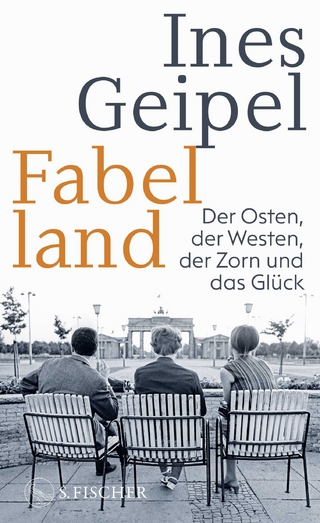
Varieties of Economic Nationalism in Cold War Europe
Bloomsbury Academic (Verlag)
978-1-350-42864-5 (ISBN)
- Noch nicht erschienen (ca. Februar 2025)
- Versandkostenfrei innerhalb Deutschlands
- Auch auf Rechnung
- Verfügbarkeit in der Filiale vor Ort prüfen
- Artikel merken
Examining the impact of economic turning points such as the simultaneous crises of Western Keynesianism and Eastern Marxism-Leninism, the oil and financial shocks of the mid-1970s or the interplay of economic liberalization and decolonization on small state economic policy-making and diplomacy, eight empirical case studies are here brought together to illustrate the variety of Cold War-era economic nationalisms and their oscillation between protectionism and free market approaches. Far from being powerless and subjected to the geo-economic binaries of the early Cold War, small states in East and West were, as the contributions demonstrate, very capable of turning smallness into a strategic asset and expanding their room for manoeuvre in a quickly shifting global economy.
The ebook editions of this book are available open access under a CC BY 4.0 licence on bloomsburycollections.com. Open access was funded by the Austrian Science Fund.
Adrian Brisku is Associate Professor in Modern History at Charles University in Prague, Czech Republic and Ilia State University in Tbilisi, Georgia. He is the author of Bittersweet Europe (2013) and Political Reform in the Ottoman and Russian Empires (2017). Martin Gumiela is a PhD candidate at the Research Centre for the History of Transformations (RECET) at the University of Vienna, Austria. Lars Fredrik Stöcker is Research Fellow at the Research Centre for the History of Transformations (RECET), University of Vienna, Austria. Among his latest publications is the monograph Bridging the Baltic Sea: Networks of Resistance and Opposition in the Cold War Era (2018).
List of contributors
List of abbreviations
Introduction: Economic Nationalism’s Plurality in Discourse and Practice in Small (Nation-)States, Adrian Brisku, Martin Gumiela and Lars Fredrik Stöcker
Part I: Small state and proto-state agency in times of economic changes
1. Varieties of Economic Nationalism in Small (Nation-)States, Adrian Brisku
2. Becoming “Masters of Their Own House:” Economic Nationalism and Small-state Building in Communist Federations, Lars Fredrik Stöcker
Part II: Going Global
3. “No Games. Just Business”: Luxembourg’s Varieties of Economic Nationalism’, Thomas Kolnberger
4. Czechoslovak Experts in Independent Lusophone Africa as a Variant of Economic Nationalism, Barbora Menclová
Part III: Détente through Foreign Trade
5. “Doing Business with the Colonels”: Greece’s Financial Relations with Austria and the German Democratic Republic during the Greek Military Dictatorship, 1967-1974, Ioannis Brigkos
6. Austrian Osthandel as Economic Nationalism? Reassessing the Role of Foreign Trade in Austro-Keynesianism, Maximilian Graf
7. National in Content and… Pragmatic in Practice: People’s Poland’s Economic Relations with the Western Polish Diaspora in the 1970s and 1980s, Martin Gumiela
Part IV: State-Building through Globalization
8. Economic Nationalism in Socialist Yugoslavia: The Slovenian and Croatian Responses to Globalizing Market Forces in the 1970s, Benedetto Zaccaria
9. Elastic Estonia: Late 1980s Economic Debate in a Small Nation, from Self-Management to Independence, Kevin Axe
Conclusion: “Icebreakers” in the Economic Entanglements in Cold War Europe, Adrian Brisku, Martin Gumiela and Lars Fredrik Stöcker
Bibliography
Index
| Erscheint lt. Verlag | 20.2.2025 |
|---|---|
| Zusatzinfo | 24 bw illus |
| Verlagsort | London |
| Sprache | englisch |
| Maße | 156 x 234 mm |
| Themenwelt | Geschichte ► Allgemeine Geschichte ► Zeitgeschichte |
| Geisteswissenschaften ► Geschichte ► Regional- / Ländergeschichte | |
| Geschichte ► Teilgebiete der Geschichte ► Wirtschaftsgeschichte | |
| ISBN-10 | 1-350-42864-7 / 1350428647 |
| ISBN-13 | 978-1-350-42864-5 / 9781350428645 |
| Zustand | Neuware |
| Haben Sie eine Frage zum Produkt? |
aus dem Bereich


